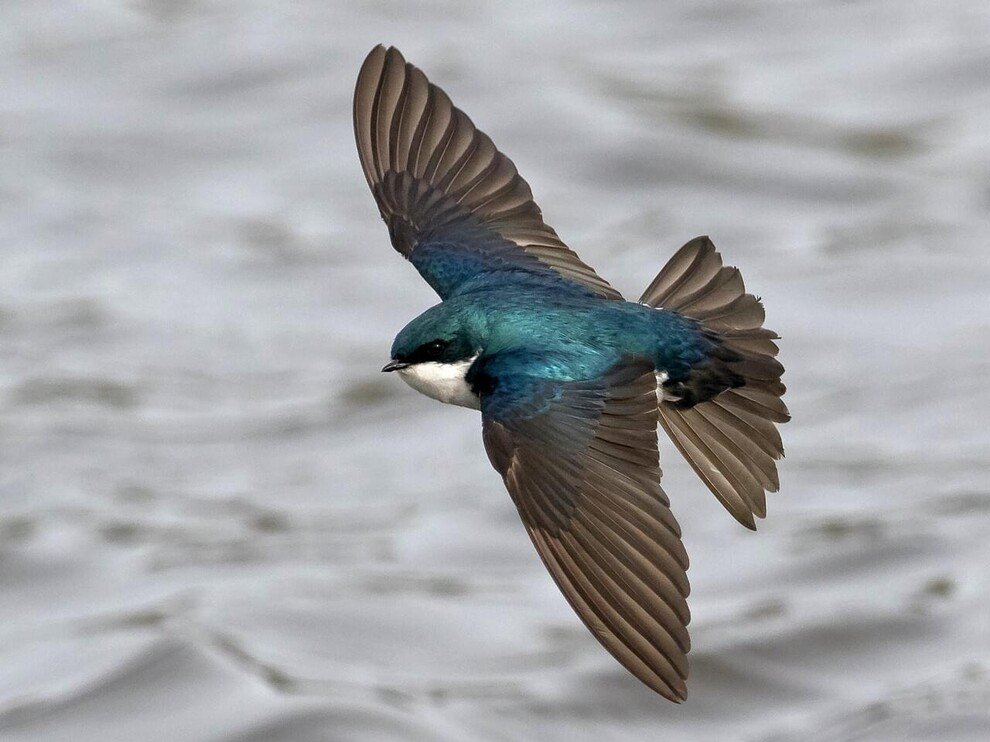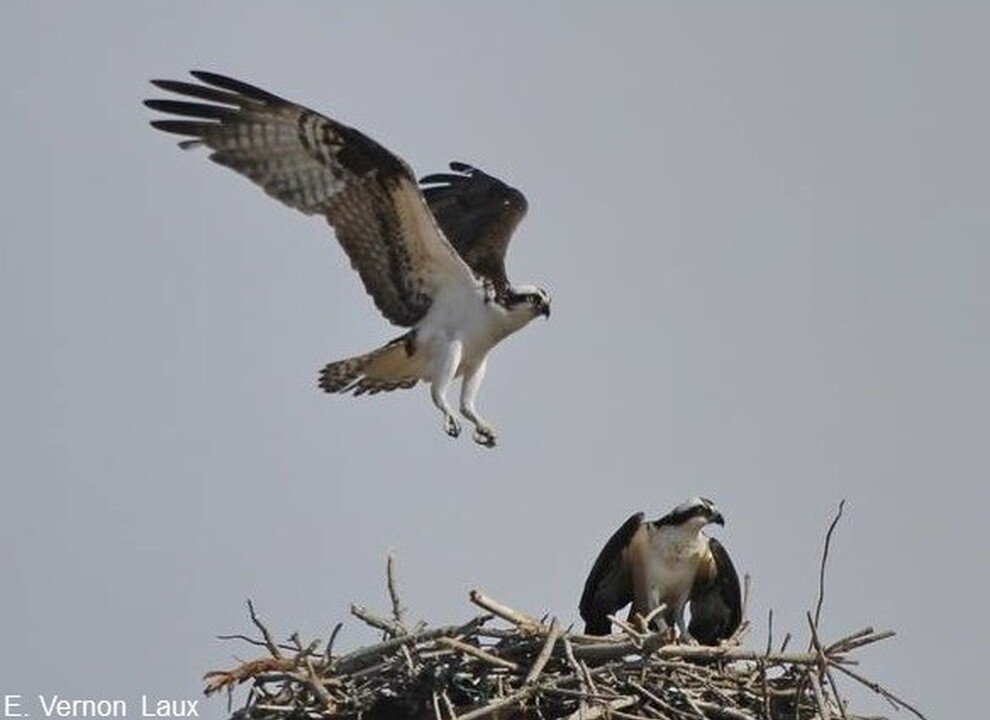
Current Nature: Queer Ecology
Among the most famous of all scientific texts is On the Origin of Species by Charles Darwin. The theories of natural selection and survival of the fittest are taught in schools around the world and have shaped modern ecology as we know it. About a century before Darwin, Carl Linnaeus pioneered modern taxonomy, introducing binomial nomenclature and the classification of life that we still use today. Although these systems have been useful in the scientific understanding of nature, over time they have led us to favoring rigid, binary labels; something must either be live or not alive, wild or domestic, male or female. Yet, the reality of life is much more complex, and the more we try to categorize species with distinct labels, the more we end up with ‘exceptions.’ One example that many people know about is that mammals give live birth except platypuses and echidnas, which lay eggs. We also have a tendency when discussing survival of the fittest to imagine ‘fit’ as being physically strong, fast, and smart; think a cheetah chasing down an antelope. But Darwin never referenced physical fitness, his belief was that the individuals that survived and the species that evolved did so because their genes and adaptations were the right match for their environment. This constant pressure to find a niche has led to infinite adaptations many of which do not match commonly held assumptions.
Current Nature: Spawning Season
Horseshoe Crabs are one of the many natural treasures found on Nantucket. They are commonly seen this time of year scooting about in shallow water, or along the shoreline. May and June is their breeding season, when hundreds of Horseshoe Crabs come ashore during full and new moons to breed. Did you know that these creatures are “living fossils”?
Current Nature: The Magic of Bird Migration
If you're teetering on the edge of diving into the birding world, now's the perfect moment to spread your wings and join the flock. It's spring migration season, and it's like a bird bonanza right at your doorstep. From tiny warblers flitting among the branches to impressive raptors gliding overhead and elegant shorebirds foraging at low tide, there's a spectacle for everyone. And with birds in constant motion day and night, there's always a chance of spotting a delightful surprise!
Current Nature: Walden Warming - Investigating Climate Change Impacts Through History And Science
With the daffodils waning after a gorgeous Nantucket holiday weekend, we’re out and about looking for other signs of spring. Next to bloom are lilacs in our gardens and beach plums along the island’s sandy trails. I hear that the stripers are soon to follow, for those who keep an eye towards the water.
Current Nature: Celebrating Spring With Our Tree Swallows
Guess who's back on island to kick off spring in style? That's right - the tree swallows have returned, and they're putting on quite the show across our island.
Around this time of year, these fantastic iridescent blue-green birds start showing up, fresh from their winter adventures down south in places like Florida and Central America. It's always exciting to see them flock together, almost like a migration party on our island. We are thrilled to have them back with us.
Current Nature: Phenology Fun
Kristin Bullett, Community Engagement Coordinator, Linda Loring Nature Foundation • Apr 01, 2024
Unlike most plants, Beach Plum flowers before leaf buds appear, a unique phenological display.
Spring has arrived, just in time for National Phenology Week! Spring is a great time of year to dive into phenology, which is the study of the timing and patterns of events in the natural world, like the annual life cycles of plants, animals, and other living things. These events include the budding of leaves, the arrival of migratory birds, the flowering of plants, and the onset of fruit ripening. Phenology is a vital field of ecological research that helps us understand how organisms respond to environmental cues such as day length, temperature, and rainfall, and how climate change can impact these seasonal changes.
Here on Nantucket, we look to specific signs that spring is here. One very audible sign is the calling of Spring Peepers, which has begun in the last week or so. Many of us look forward to blooming daffodils to signal winter’s end, and the Osprey’s arrival tells us spring is here. Studying and tracking these everyday events can tell us a lot about the environment and how it is changing.
Phenology is a key part of the research we do at Linda Loring Nature Foundation. Across our 275-acre property, eight sites are monitored for changes in native shrubs like Black Cherry, Bayberry, and Scrub Oak. These sites also have temperature sensors so we can record that data along with when plants are budding, fruiting, and shedding leaves. LLNF has collected a decade’s worth of data on the phenology of native species on our property, which serves as a baseline for tracking environmental changes. We can compare data across different years to get a big-picture look at what’s happening with these plants.
These cherries are beginning to leaf out. This photo was from May 20th 2023, and could be used to compare the phenophase of the same trees on May 20th this year.
You might be wondering, “What’s the big deal? Who cares when a Black Cherry flowers?”, but remember that everything in nature is connected. If a plant’s flowers bloom early, then they will form fruit early. Insects that depend on the flower’s nectar will emerge at the “usual” time, and be left without a food source because the flowers have come and gone already. And the plant will miss out on the pollination from these insects, too. When a mismatch in phenology occurs, the ripple effect on the food web can impact a species’ survival.
LLNF’s research is part of the National Phenology Network, an organization that collects, organizes, and shares phenological data to create a broad understanding of phenology. This data is essential for researchers, policymakers, and land managers to make decisions that affect our environment. You can follow along with us and NPN to learn more about phenology. LLNF was honored to be selected as the 2023 PhenoChampions by NPN, an award that was just recently presented in March during National Phenology Week!
Phenology research is a great outlet for Community, or Citizen, Science. When the public contributes information to a scientific project, that’s what we call Community Science. Community Science projects have volunteers who work alongside scientists to collect and manage data for real-world research projects. Dozens of volunteers (students and adults alike) have contributed to our phenology research. All you need is a notebook, a pen, and a keen eye! We look closely at buds, flowers, and fruit to determine exactly what “phenophase” a plant is in. You can also discover phenology in your yard or garden- which you may be doing already without realizing it! This spring, jot down the date your crocuses popped up, or when the lilac bush formed buds. Phenology is a fun way to become more connected to the natural world and appreciate the small changes happening every day.
Stay tuned for more editions of Current Nature, a biweekly column from the Linda Loring Nature Foundation featuring seasonal topics, natural history information, and advice on the outdoors!
This Black Cherry’s leaf buds have begun to open. Look closely for these changes in the plants around you!
Current Nature: Migration Marvels
In the next few weeks, the first seasonal residents will return to Nantucket. No, not mainlanders- migratory birds! The majority of birds that we see on Nantucket spend the winter elsewhere, either somewhere very warm or very cold depending on the bird. Soon a trickle of songbirds and shorebirds will arrive, beginning another spring nesting season.
Current Nature: Be A Bird Buddy!
In today’s age of modern technology, there are more options than ever to learn about birds in your own backyard. One of the coolest items to recently hit the market is the Bird Buddy, a compact bird-feeder that takes pictures of the birds that visit, identifies them for you and sends the photo directly to an app on your smartphone.








